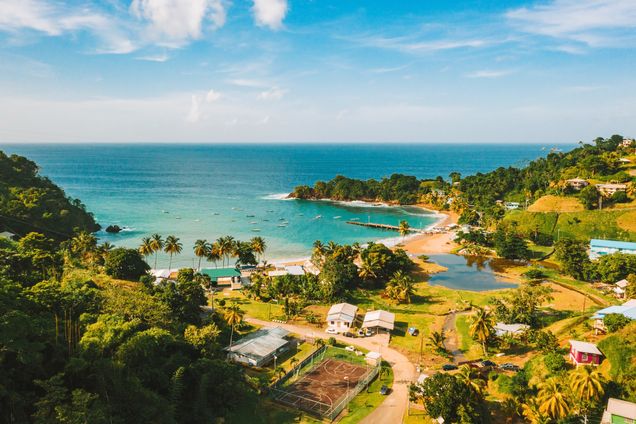Strengthening the International Monetary Fund’s Resilience and Sustainability Trust to Promote a Just, Global Climate Transition: Early Evidence from Barbados and Jamaica

As the only multilateral, rules-based institution responsible for promoting global macroeconomic and financial stability, the International Monetary Fund (IMF) has a central role to play in helping its member countries urgently unlock and mobilize substantial and affordable climate financing. In this respect, the IMF must be commended for expanding and complementing its lending toolkit by creating the Resilience and Sustainability Trust (RST) in April 2022. Through the RST’s lending arm, the Resilience and Sustainability Facility (RSF), the Fund provides concessional, longer-term financing to help low- and vulnerable middle-income countries address key structural challenges such as climate change and pandemic preparedness.
A new technical paper from Jwala Rambarran and Sara Jane Ahmed for the Task Force on Climate, Development and the IMF provides an early-stage evaluation of the RSF experiences of the two pilot Caribbean Small Island Developing States (SIDS) – Barbados and Jamaica – and draws lessons for the design of future RSF-supported programs to ensure they adapt to the specific and unique circumstances of IMF member countries.
Key findings:
- Both Barbados and Jamaica experienced substantial increases in conditionalities when their RSF arrangements were considered along with their accompanying IMF programs.
- Barbados was required to meet roughly a little over eight structural conditions per year when its RSF arrangement was included with its Extended Fund Facility (EFF)-supported program over the 2022-2025 program period.
- Compared to Barbados’ previous 2018-2022 EFF program, this represents an increase of 60 percent from around five structural conditions per year.
- In the case of Jamaica, the number of structural conditions increased three-fold to almost nine per year when its RSF arrangement was included with its concurrent 2023-2025 Precautionary and Liquidity Line (PLL) arrangement, compared to an average of 3 conditions per year under the previous 2016-2019 Stand-By Arrangement (SBA).
- The degree and durability of structural conditions in RSF arrangements for both Barbados and Jamaica are mainly of low- to medium-depth.
- In the case of Barbados, its RSF-supported program is almost equally split between low- and medium-depth conditionality which together account for 90 percent of the total policy reform measures. One high-depth measure makes up the remaining 10 percent of total reform measures.
- Similarly, for Jamaica, its RSF arrangement is equally balanced between low- and medium-depth conditionality measures. Unlike Barbados, Jamaica’s RSF arrangement does not have any high-depth conditionality measures.
- Although the Jamaican authorities have been working assiduously to catalyze private climate financing, by the end of August 2024, when Jamaica’s RSF arrangement was completed, no such private flows had taken place, despite Jamaica being under an RSF arrangement for two years and had met all of its RSF reform measures. After being under an RSF arrangement for two years, Barbados, on the other hand, was finally able to attract private climate finance flows through its debt for climate resilience swap operation.
This study derives a series of recommendations for the IMF to strengthen future RSF programs in other Caribbean SIDS and climate vulnerable states.
Key policy recommendations:
The IMF and its member countries should:
- Consult civil society and other stakeholders to not only strengthen country ownership with respect to RSF arrangements in the Caribbean and beyond, but also to put climate policy reforms with a just and equity perspective on the negotiating table for consideration.
- Focus on a few ambitious, high-depth reforms that stand a reasonable prospect of successfully building economic resilience to natural disasters and climate change in the Caribbean and in other vulnerable developing countries.
- Candidly highlight potential risks of lower private climate flows since the RSF’s catalytic character is still unproven.
- Establish a link between debt and climate finance to help Caribbean and other nations escape from the vicious ‘middle-income’ country debt-climate change trap.
- Pay more attention to the critical interplay between climate risks and nature.
The IMF has commendably taken important steps in creating the RST, and while the 2024 interim review of the RST represented some progress, many of the major shortcomings of the RST remain in place. The comprehensive review of the RST planned for 2026 presents a vital opportunity for the IMF to not only show faster and bolder leadership to make the RST a transformational part of the global financial architecture, but also to ensure the Fund’s future relevance in promoting a just, global climate transition.
Read the Technical Paper Read the Blog